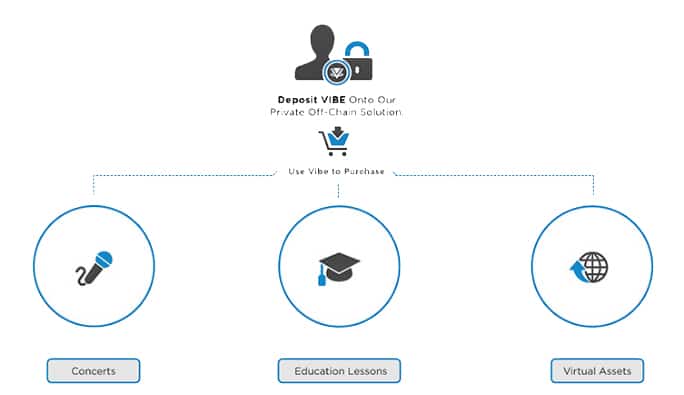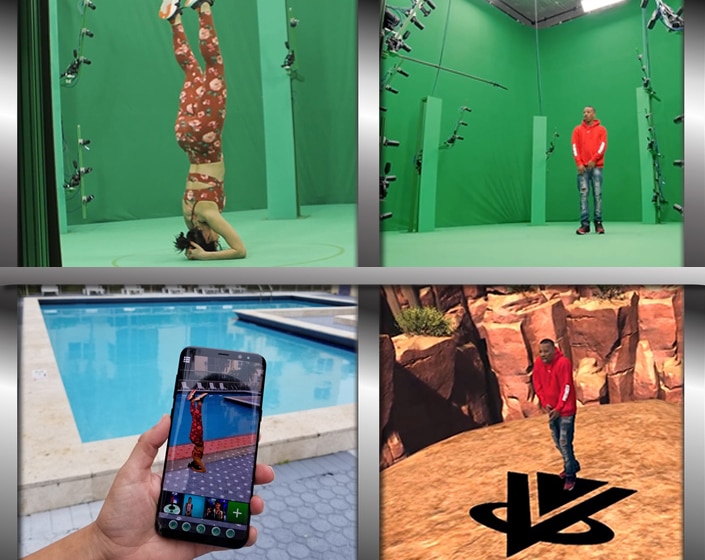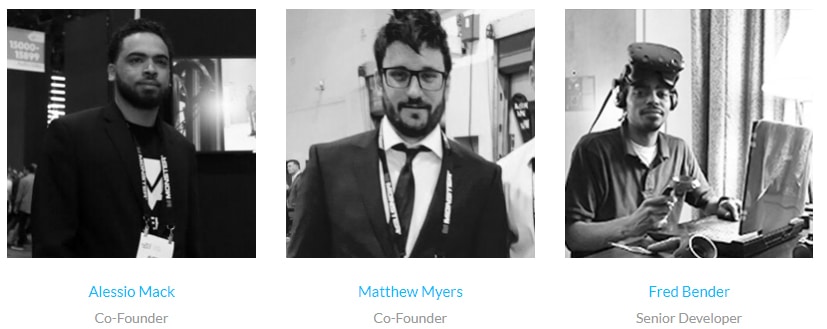Virtual Reality, Augmented Reality and blockchain are some of the most interesting technologies around today. VibeHub (VIBE) is a project that is trying to unify them.
While Vibehub may not be the first company to integrate blockchain and VR technology, they are one of the first to develop an entire marketplace. Using the VIBE utility tokens, users will be able to buy access to events like concerts and education seminars as well as purchase digital assets.
However, is there really a need for a project like the VibeHub and will the VIBE tokens ever be used?
In this VibeHub review we will take an in-depth look at the project including such factors as the use cases, technology and team members. We will also analyse the potential for long term adoption of the VIBE token in the current cryptocurrency landscape.
What is VibeHub?
VibeHub is one of the first blockchain based virtual and augmented reality marketplace platforms. It joins other blockchain based projects such as Ceek VR and Decentraland which are developing their own solutions in the rapidly growing virtual reality industry.
Some analysts have projected that the VR industry will grow to as much as $100 billion by 2020, and as one of the first blockchain’s exploring this technology VibeHub could become a giant in the industry. Of course, there are a number of things that will have to happen before we can realistically see this adoption.
What does VibeHub Do?
VibeHub is focused on making interactive VR a possibility. Through their volumetric video technology they create holograms of teachers, artists, musicians, comedians and more and then stream those holograms in a virtual reality setting. This will bring performances and education to millions of people through a single stream.

VIBE Tokens and VibeHub Ecosystem
Users will be able to watch and participate in gaming, attend concerts, listen to lectures and view other performances through VR. The VibeHub servers are being optimized to support everything from individual streams to streams with massive audiences and attendees. VibeHub is the first company to try and implement such an idea, making them unique not only in the VR space, but also in the blockchain space.
The platform launched its main net in September 2018, but the VIBE token remains on the Ethereum blockchain. The hybrid solution developed by VibeHub uses the Ethereum blockchain, but also allows micro-transactions to be completed off-chain with no gas fee.
How VibeHub Works
With a focus on both virtual reality and the growing area of augmented reality, VibeHub works by capturing the actions of video streamers using volumetric videos.
These volumetric videos are used to create a hologram of the person in a custom created VibeHub VR environment. Already they have created over 100 volumetric captures and the related hologram avatars.

Photo Realistic Holograms on VibeHub
This creates a more immersive environment than has previously been possible. And even those without VR and AR hardware can enjoy the VibeHub experience through WebGL/WebVR on compatible modern browsers on desktop or mobile devices.
VibeHub is partnered with VR hardware and software developers like Unity, Samsung Gear, Sony Playstation, Microsoft Hololens, HTC Vive, Oculus Rift and Daydream by Google. Other hardware and software vendors are coming and soon no one will be left out from experiencing VibeHub.
What VibeHub Offers
As the VibeHub team moves forward into new and exciting territory the potential for the platform continues to grow. Already the platform is maturing and can offer many features to its users.
- Monetization: Of course people are interested in being able to monetize digital assets, and VibeHub makes this possible through the use of its volumetric video and other virtual assets on its platform.
- Online Exposure: YouTube was the original video platform for creating online exposure, but VibeHub is taking online exposure to a new level and promises to give users “a voice among the masses.” Users will be able to spread their ideas and message wide and far in a new, unique way. The additional of a VR/AR marketplace on VibeHub will also allow users to promote their products faster than ever, reaching a laser targeted audience.
- Quick, Easy Payments: By using a hybrid solution of blockchain and offchain solutions VibeHub makes everything from micro-transactions to large transactions quick and easy. Sending and receiving payments on the platform happens in just minutes, and micro-transactions are processed off-chain immediately. The increasing adoption and understanding of cryptocurrencies will make the platform grow even faster once users understand how smooth and frictionless transactions can be.
- Online Shopping: Ecommerce has become huge, and today nearly anyithng can be purchased online. VibeHub will also join this revolution by providing a marketplace to allow users to purchase educational services, music, gaming services and more. VibeHub can even act as a dating platform through the use of avatars and the ability to connect with others online. All of this will be included on one platform and with one unified currency.
- Security: Security is a top priority in any cryptocurrency, and the executives at VibeHub has consistently emphasized that the VibeHub software is continually monitored for any issues or problems. The combination of a huge user base and a cryptocurrency means the platform needs to remain secure at all times. Security is the top priority at VibeHub.
- Immersive Experience: There’s nothing online that’s more immersive than the virtual reality provide by VibeHub’s hologram avatars. Users can express their own creativity in this virtual world and share with millions of others around the world. It’s like video streaming, but far more immersive.
- Content Creators Rewarded: There have been many problems with the way centralized websites reward the content creators on their platforms, but VibeHub was designed to ensure content creators are properly rewarded for their content. VibeHub has all proceeds from content going directly to the creator. No one else takes a cut. There will also be opportunities to produce collaborative content and share revenue.
VibeHub Team Members
VibeHub has quite an interesting mix of team members with an equally diverse set of backgrounds. For example, Allessio Mack (Co-Founder) has described himself as a "self taught tech guru" who specializes in AR and VR technology. Prior to founding VibeHub he used to work as the CTO of Konvict entertainment (Akon's music label).

Some of the VibeHub Team Members
He is joined as a founder by Matthew Myers who has worked in Blockchain consulting since 2015. Prior to that he used to work in the Oil and Gas industry in Calgary, Canada. The senior developer on the project is Fred Bender who appears to have worked as a developer in a previous company called VRITALL.
VibeHub Roadmap
With the launch of the main net in September and the recording of 100 volumetric videos VibeHub met all of its 2018 goals. In 2019 the company has plans to release the first social video game on the VibeHub platform. It is also working to release an SDK for off-chain integration.
VibeHub will also create its own VR headset and capture hardware to allow users to create volumetric videos and holograms. Finally, they will launch the very first retail location for VibeHub VR experiences.
By 2020 they plan on building multiple capture facilities and begin the integration of artificial intelligence into the platform. There are also plans for a volumetric full featured film and real-time hologram communication on the platform, which will begin to realize the ultimate potential of VibeHub.
The VIBE Token
As I mentioned earlier, there is a cryptocurrency used on the platform, and it is known by the ticker symbol VIBE. It’s a utility token that is used to purchase goods and services within the VibeHub ecosystem. It will also be used for voting on the platform, and for attending virtual concerts and the like.
VibeHub held an ICO in August/September 2017, selling 160 million VIBE at a price of $0.014 each. This followed a private sale of 100 million VIBE tokens at an undisclosed price. This means the project raised a minimum of $2.24 million.
 Register at Binance and Buy VIBE Tokens
Register at Binance and Buy VIBE Tokens
The token hit an all-time high of $2.28 on January 10, but has since fallen drastically and as of November 22, 2018 it is trading just under $0.03. While that’s still double the ICO price the token isn’t showing much sign of life at this point as it has steadily fallen through most of 2018, although there was a brief pop higher when the main net was released.
You can purchase VIBE from the Binance Exchange, which has nearly all the trading volume, although VIBE is also listed at HitBTC, IDEX and LATOKEN.
As an ERC-20 token you can store VIBE in any of the ERC-20 compatible wallets.
Conclusion
While there are other platforms taking on the challenge of virtual reality on blockchain technology, VibeHub has a unique spin on the technology, and could become a major force in the entertainment, gaming and education VR spaces.
They are making very good progress, and if they can stick to their roadmap and hit their planned goals the project should see success. They’ve proven they can keep their momentum so far, and have partnered with many of the major hardware and software companies in the VR space.
This is all very promising for the future of VibeHub, although the declining price of the VIBE token is somewhat disappointing.
Featured Image via VibeHub.io



